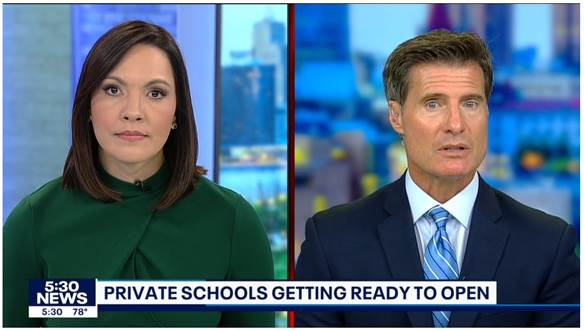Everybody loves Mike Rowe. His matter-of-fact sense of humor, his humility, and his willingness to get involved in the many work sites featured on his “Dirty Jobs” show make him an endearing figure.
But Rowe is also very intelligent. He has his finger on the pulse and problems of America in a way that many others often don’t recognize. Take the recent interview he did with Nick Gillespie of Reason in which he discussed how the missteps of the education system produced a generation of entitled young people who turn up their noses at blue collar or low-paying work.
The absence of shop class is the first misstep Rowe raises. “The rift in our work force and the labor shortage we’re seeing today can be walked right back to the moment we decided to take shop class out of high school,” Rowe said. “So many things followed that as a result.”
Those blessed enough to remember the days when shop class was a regular part of the high school curriculum know that it was the reason many young men stayed interested in school. Physical movement, a key need for young males, was permissible and even needed in shop class. The class also cast a vision for the types of real-world work available for young men to begin their course in life as providers and leaders. And it was in shop class that young men could actually see the skills they learned in math and science class used for practical purposes.
Remove shop class from school, and many young men are left listless, feeling like they’re dumb and unable to adequately function as profitable members of society.
The second misstep of the education system Rowe discusses is the dismissal of minimum wage work. We’ve given students “the idea that we think the lower rungs on the ladder are somehow less important,” Rowe said. “So many arguments attempt to take an entry-level job that was never designed to generate enough income to support you and belittle that opportunity because it’s not a higher rung.” As a result, Rowe said, “A lot of people coming right out of college don’t want to waste their time on the lower rungs. There’s an impatience with it, and that’s really a shame because the things you can learn on the lower rungs are manifold.”
As someone who climbed the career ladder from intern to editor, stopping at many different levels on the way up, I agree. Starting as the low-man on the totem pole often gives an employee an appreciation for his job and salary, as well as a greater humility in his work, than one who landed a high-level, high-paying job from the get-go. When schools fail to teach students that it’s okay to start small and work their way up to success, they often set students up for disappointment and failure.
Finally, Rowe backhandedly points out a third misstep of the education system in the following observation: “Look, what our country needs are more welders who can talk intelligently about Descartes and Nietzsche. And what our country needs are more philosophers who can run an even bead.”
In making such a statement, Rowe hints that today’s schools are not training students to truly labor with their hands or their minds. Circumstantial evidence agrees, as recent man-on-the-street interviews show that schools turn out many young people who don’t know how many states are in the U.S. or even how many dimes are in a dollar. Yet Americans could once enter the workforce with only an 8th grade education and still run rings around today’s students in their knowledge of classic literature, philosophy, and history.
Which brings us to our current education system. If we’re truly serious about giving students better opportunities, then we will bring back not only shop class, but a course of academics teaching students how to think and become life-long learners, instead of simply filling their minds with the drivel known as diversity, equity, and inclusion. Furthermore, we will teach them that there is nothing wrong with hard work or starting at the bottom, for such humility is the best foundation for strong success.
The sooner our schools teach these Rowe-esque lessons in practicality, the better off we’ll all be.
—
Image Credit: PICRYL, Public Domain












![[downloaded during free trial]](https://oakmn.org/wp-content/uploads/2025/11/iStock-1430368205-120x86.jpg)
